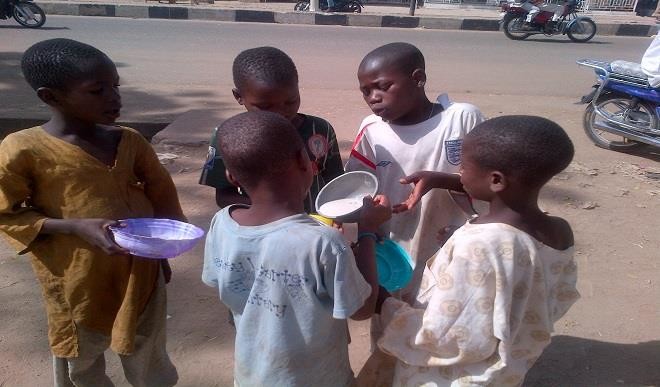While banning Almajiri system (in urban centres?!) and sudden return of millions of these Almajirai (‘Almajiris’), to their villages may portray a state governor as ‘an action man’, the approach only transfers the problem from urban centres to villages; it never solves the problem! In actual sense, this may even precipitate bigger socioeconomic and security problems in the near future. The panhandling beggar (Almajiri) today may become an armed snatcher or kidnapper tomorrow.
In the face of COVID-19 realities, these victims are counting on the support of all kind-hearted Nigerians, now more than ever. Almajiris, who are about the size of United Arab Emirates in terms of population, could qualify as great national assets – if properly nurtured and guided. This should be a major goal of any resolution, policy or legislative framework we prescribe to Almajiri problem. Policies should not be designed to worsen their plight.
Sudden banning of the system, with no lucid plan after the ban, is counterproductive and will only further complicate the problem. Instead, Northern Governors’ Forum (NGF) needs to adopt a well thought out integrated solution model, one that features strict regulatory regime, provision of (customised) Almajiri empowerment options, enhanced religious education and targeted campaigns. Publicly, available reports of the NGF meeting never mentioned NGF’s post ban plan for Almajiris. One would expect the governor’s meeting to articulate equally robust and jointly pursuable plan to establish Almajiris empowerment programmes in those villages after the ban.
While Almajiri parents continue to vacate their responsibilities by sending their underage children to other places to fend for themselves, government has also failed to provide adequate facilities, needed protection and educational models that respond adequately to the peculiar socioeconomic realities of Almajiris. This is a country where, in some places, children are still taught under the tree. If Almajiri parents miraculously say: here are our kids, enrol them into the UBE schools, currently, government has no facilities to accommodate 9 million extra Almajiris. But, contradictorily and unfortunately, government and a section of the general public have continued to shift the entire blame to almajiri parents for not enrolling their kids into schools that do not exist.
While COVID-19 continues to exert enormous pressure on global health and economy, it also presents a number of rare opportunities. For instance, a major impact of COVID-19 on Almajiris is that, to reduce spread rate, state governors across the northern part of Nigeria have returned thousands of Almajiris back to their parents. While this measure has disrupted their education and means of livelihood (dignified and undignified means), it has actually presented a rare opportunity for governments to once and for all put to rest this undignified form of Almajiranci. With thousands of Almajiris now under the care of their parents/guardians, government should swiftly develop customised empowerment programmes and deploy same to strategic Almajiri Producing Areas (APAs) immediately after the COVID-19 crisis. The time to start planning is now. It is a narrow window of opportunity that may not be there in the next few weeks! While this option is not cheap and quick like the ban option, it is certainly more realistic and sustainable solution to Almajiri problem. Unfortunately, instead of grabbing this window of opportunity to reform the Almajiri system, NGF has chosen to revert to the old futile bluff of banning the Almajiri system.
Further highlighting how the authorities view Almajiris’ case, governments recent interventions/disbursements against COVID-19 pandemic do not seem to consider the plight of over 9 million Almajiris as problem that deserves special attention. For instance, many state governors were able to swiftly disburse millions of Naira to buy airtime for teaching conventional school students via media such as radio and TV, because they don’t want them to miss a few months of studies. The same governors fail to mobilise resources to repatriate Almajiris back to their parents in good time. As a result, belatedly, amidst COVID-19 crisis, many state governors are currently repatriating Almajiris, in some cases, without even observing social distancing among the evacuated Almajiris, nor arrangement for proper screening of Almajiris for COVID-19. Inadvertently, those state governors may be transferring coronavirus from their states to others. On the other hand, keeping Almajiris locked down under Malams custody will present enormous subsistence challenges, asides the COVID-19 health risks. But ultimately, how did we get to this complicated situation?
In the last 60 years or so, different Almajiri solution options or schools of thought have been advanced by governments, NGOs and individuals. Over time, some of those concepts have fizzled out while others are still in the front burner. For instance, the idea that ‘status quo be maintained’ (i.e. do nothing to Almajiri system) or ‘Summary banning of Almajiri system of education’ are no longer considered as practical and realistic options by overwhelming majority of the subject matter experts.
Another school of thought is: ‘Just pack and return to parents’. That is, summarily pack and return Almajiris to their parents favoured by many state governments now, it is not without some obvious negative consequences. So, Almajiris will be in those villages and have no practical access to the UBE. But even if they have access to the schools, who is going to fund the post basic education – that poor peasant farmer/herder who scarcely appreciates the importance of UBE? In fact, must we push over 9 million Almajiris into Nigeria’s already saturated labour market? Why not guide them towards self empowerment? Governments’ sincere political will is an important factor here.
There are quite a number of solution models now that try to address these drawbacks. These solution models try to factor in the intergenerational socioeconomic disadvantages, cultural and spiritual dynamics that govern Almajiri parents’ choices and dispositions. They are the ‘Integrated Solution Models’. Some of these ‘Integrated Solution Models’ are fully aligned with the provisions of section 15(1) of the UBE Act 2004. The integrated models are customised to emphasise what Almajiri parents have long been asking for, i.e. integration of customised Technical and Vocational Education and Training (TVET) as well as a simplified version of the UBE into the traditional religious education.
It is important to note that, as citizens, Almajiris are entitled to free Universal Basic Education. So, equivalent of the conventional UBE budget that they are entitled for may be creatively applied to deliver a customised TVET-oriented basic education to Almajiris. One of the benefits is that, while the conventional UBE takes 9 years and ends with junior school certificate, these innovative models will allow Almajiris to attain vocational proficiency and financial independence in fewer years.
As an NGO, Almajiri School Remodelling Initiative (ASRI) has succeeded in mobilising and organising hundreds of well-meaning people from different parts of Nigerian, including highly revered subject matter experts to develop what has now been termed: Integrated Tsangaya Education Model (ITEM). ASRI’s model (ITEM) comprises:
Almajiri education & vocational enterprise:
Basic education and Technical and Vocational Education and Training (TVETs), and Enhancement of religious education.
Campaign & advocacy (targeting six group of stakeholders)
Research & development (including baseline data capture)
ASRI believes that legislations/regulations must be promulgated and STRICTLY enforced at the RIGHT TIME in order to fully address the Almajiri and other out of school children problems –but before that, the governments must do their part first to avoid creating bigger problem.
It’s a collective responsibility; all hands must be on deck.
Dr. Usman Abubakar Zaria, Convener, Almajiri School Remodelling Initiative (ASRI).




